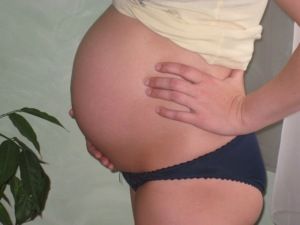News
Child-birth: caesarean delivery numbers could be reduced by exercise and better eating
This article is more than 8 years old.
Experts call for national nutrition guidelines for pregnant women who are also overweight

Exercise is good for both mum and the little one (photo: pixabay/margitwinkler)
According to figures from the national statistics keeper Danmarks Statistik, 58,208 children were born in 2015. Of these, almost 13,000 of them – around 22 percent – were delivered by caesarean delivery.
However, healthy eating and regular exercise can reduce the risk of pregnant women needing a caesarean delivery when it comes to having their baby, a new study shows.
READ ALSO: Denmark has most caesarean births in Scandinavia
More than 50 researchers from 41 different institutions worldwide have contributed to the study, including Professor Arne Astrup from the department of nutrition, exercise and sports at Copenhagen University.
Pregnancy-related diabetes
A caesarean delivery can be deemed necessary if the child is affected by pregnancy-related diabetes. This increases the risk of the child being larger than normal when it is ready to be born. In addition, both the mother and child have a greater chance of developing type-2 diabetes later in life.
The study shows that healthier eating habits and more exercise can reduce the risk of pregnancy-related diabetes by 24 percent. This is something that affects 3 percent of all pregnant women in Denmark, and the risk is much higher if the person is also overweight. Almost 50 percent of Danish women of childbearing age are overweight, and around 15 percent are obese.
Action needed on a national level
Astrup would like to see national guidelines for nutritional advice to severely overweight pregnant women.
“In Denmark, there are no national dietary guidelines aimed at obese pregnant women. Fortunately, there are local initiatives at a number of hospitals, but we need something on a national level.”
The risk of needing a caesarean delivery can be reduced by around 10 percent by eating more healthily and taking more exercise.






































